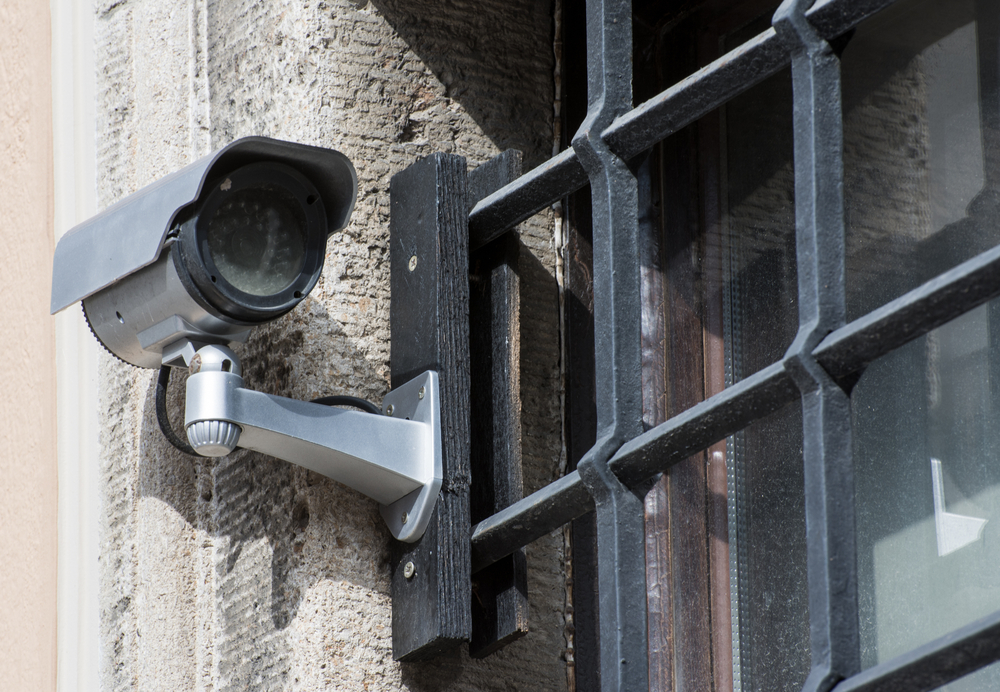UK Prisons trial facial recognition to stop drug smugglers
Biometric technology used to catch visitors supplying contraband


Biometric technology, such as facial recognition, has been successfully trialled at three UK prisons, the government revealed on Tuesday.
The technology, which includes iris scanners, has been tested at HMP Hull, Humber and Lindholme as part of a wider crackdown on drug smuggling into prisons.
Intelligence work has identified a trend of prison visitors supplying illicit items to multiple prisoners and jails across the country and according to the government, more than 23,000 drugs and mobile phones were seized by prison staff - a 4,000 increase from the year before.
Justice Secretary David Gauke, who announced the trials, said that the new technology was needed to stop drug smuggling and ultimately aid rehabilitation.
"New technology is vital in our fight against the gangs that seek to cause chaos in prisons and this biometric equipment has the potential to significantly aid our efforts," he said.
"It forms part of this government's multi-million-pound investment to improve the safety and security of our prisons. Alongside our successful officer recruitment drive, measures like this will help make prisons places of rehabilitation where offenders can turn their lives around. This will cut reoffending and make the public safer."
Individuals that smuggle drugs and devices into prisons are often difficult to track as organised criminals often falsify their identity documents. While some prisons have fingerprint recognition technology, the majority in the UK use paper-based verification, such as drivers licences, which is easy to exploit and slow to process.
Get the ITPro daily newsletter
Sign up today and you will receive a free copy of our Future Focus 2025 report - the leading guidance on AI, cybersecurity and other IT challenges as per 700+ senior executives
However, biometric technology trialled at the three UK jails has reportedly allowed staff to identify visitors using applications based around document validation, iris scanning and facial recognition software.
As yet, there are no details of any arrests or interceptions of contraband from the trials, but as a deterrent, one of the trial prisons saw a higher than usual 'no show' rate at visits after attendees found out the software would be in operation.
The Prison Service is now looking at how this, and other similar technology, could be used most effectively across the system, but governmental and authoritarian use of facial recognition has not always gone smoothly.
Without any hard statistics, such as arrests, the prison use of the technology could turn out similar to the Met Police's use of it. Last year the force continued to use facial recognition at events such as the Notting Hill Carnival, despite the fact it had proved to be 98% inaccurate. Further to this, the software identified innocent people as criminals and resulted in zero arrests.
Bobby Hellard is ITPro's Reviews Editor and has worked on CloudPro and ChannelPro since 2018. In his time at ITPro, Bobby has covered stories for all the major technology companies, such as Apple, Microsoft, Amazon and Facebook, and regularly attends industry-leading events such as AWS Re:Invent and Google Cloud Next.
Bobby mainly covers hardware reviews, but you will also recognize him as the face of many of our video reviews of laptops and smartphones.
-
 Bigger salaries, more burnout: Is the CISO role in crisis?
Bigger salaries, more burnout: Is the CISO role in crisis?In-depth CISOs are more stressed than ever before – but why is this and what can be done?
By Kate O'Flaherty Published
-
 Cheap cyber crime kits can be bought on the dark web for less than $25
Cheap cyber crime kits can be bought on the dark web for less than $25News Research from NordVPN shows phishing kits are now widely available on the dark web and via messaging apps like Telegram, and are often selling for less than $25.
By Emma Woollacott Published
-
 New malware uses search engine ads to target pirate gamers
New malware uses search engine ads to target pirate gamersNews MosaicLoader uses advanced obfuscation techniques to avoid detection
By Danny Bradbury Published
-
 US big tech suffers as federal privacy bill delayed
US big tech suffers as federal privacy bill delayedNews Firms must comply with California's strict data laws in lieu of a federal bill
By Erin Paulson Published
-
 Liberty defeated in ‘snooper’s charter’ legal challenge
Liberty defeated in ‘snooper’s charter’ legal challengeNews High court rules the government’s Investigatory Powers Act doesn’t breach human rights
By Keumars Afifi-Sabet Published
-
 Premium email firm Superhuman ends pixel tracking after backlash
Premium email firm Superhuman ends pixel tracking after backlashNews The email plugin startup removed read receipts by default after accusations of surveillance
By Bobby Hellard Published
-
 GDPR is not enough to win back customer trust
GDPR is not enough to win back customer trustIn-depth When it comes to building new services, industry experts believe there should be a collective responsibility for data security
By Mark Samuels Published
-
South Wales Police given ultimatum to drop facial recognition tech
News Ex-councillor Ed Bridges has given the force two weeks to drop tech that "violates privacy rights"
By Bobby Hellard Published
-
 Facebook suspends hundreds of apps for misusing user data
Facebook suspends hundreds of apps for misusing user dataNews An internal investigation into data misuse by Facebook apps has led to a raft of suspensions
By Tom McMullan Published
-
 Coalition Against Piracy fights online piracy
Coalition Against Piracy fights online piracyNews The new coalition, backed by numerous companies, hopes to dismantle the businesses behind pirate streaming boxes
By Hannah Simms Published